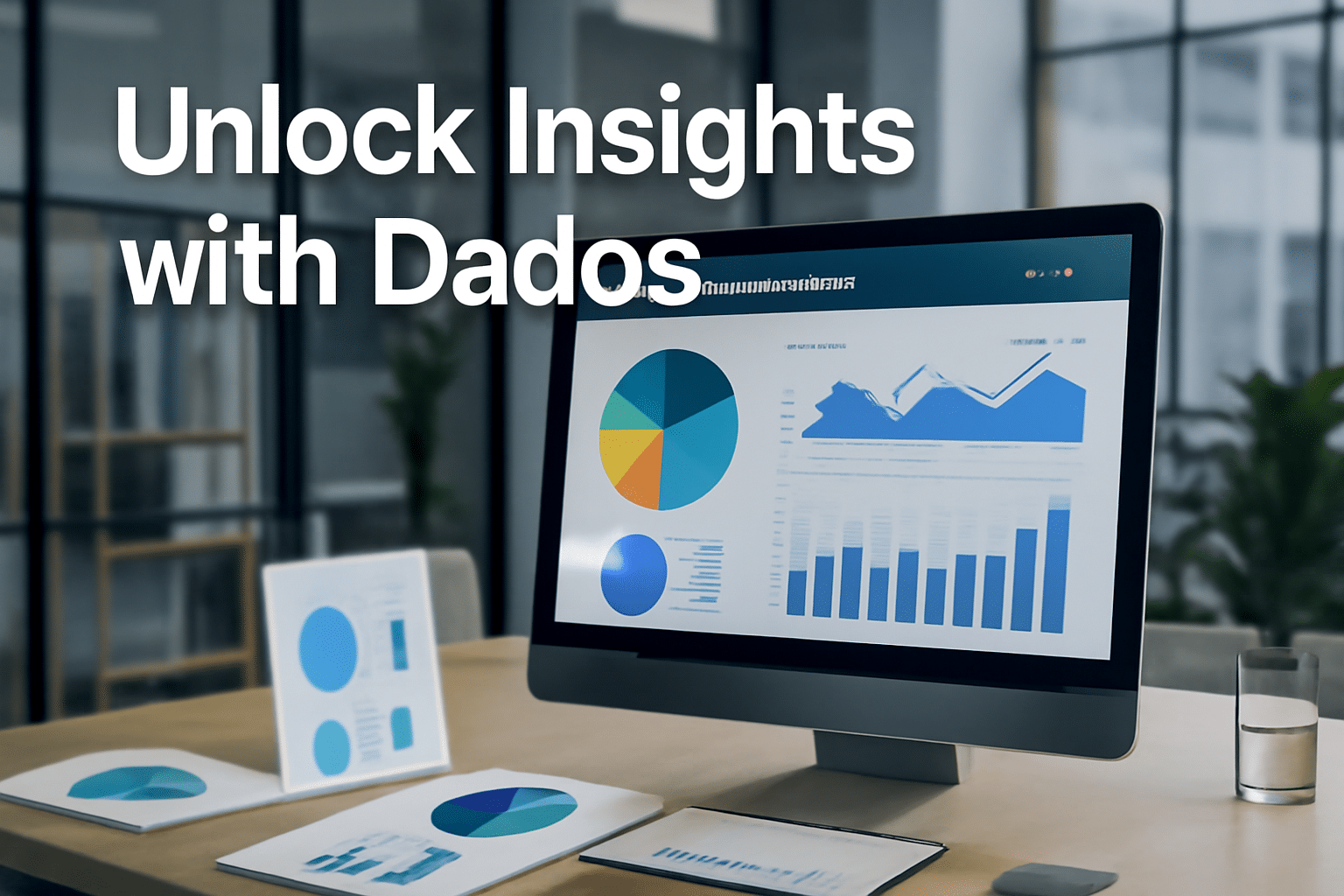What is “Dados As”? A Complete Guide
In today’s data-driven world, the word “dados” is one you’ve probably encountered more than once, especially if you’re working with data, analytics, or statistics. But what about “dados as”? You may be wondering what this phrase means, and how it fits into the vast world of data analysis. Well, you’re in the right place!
Here’s what we’ll cover in this article:
- What exactly does “dados as” mean?
- How does it apply to data analysis and other industries?
- What are the real-world benefits of using dados?
Let’s dive in and explore!
Dados As in Data Analysis: What Does It Mean?
When it comes to data analysis, the term “dados as” is a bit tricky. So, what does it mean?
Understanding “Dados”
First things first—“dados” is the Portuguese and Spanish word for “data.” Whether you’re dealing with statistical data, financial data, or any other type, “dados” essentially refers to the information you’re analyzing.
Now, “as” can be a bit more complex. In this case, “dados as” likely refers to the use of data as a tool or resource in analysis. It’s all about how we leverage data in decision-making, forecasting, and problem-solving.
Example in Context
Imagine you’re analyzing customer behavior for an e-commerce website. You could use “dados” (data) like customer purchase history, browsing patterns, and demographic information. When you say “dados as,” you’re thinking about how these data points function as tools to help you make informed decisions—like improving website user experience or optimizing product recommendations.
- FAQ : What does “dados as” mean in data analysis?
- Answer: “Dados as” refers to using data as a tool or resource for analysis. It’s about taking raw data and using it strategically to make better decisions in fields like business, research, or even healthcare.
Ever wondered how businesses grow by analyzing customer behavior? Well, “dados as” is at the heart of that strategy. Businesses use data not just to learn more about their customers, but to act on that information to improve their services.
Why is Dados Important in Modern Data Analysis?
You might be thinking, “Why all the fuss about data?” Well, here’s the deadline isn’t just numbers and charts. It’s the backbone of modern decision-making. Here’s why:
Making Informed Decisions
In the past, business decisions were made based on gut feelings, personal experience, or basic observations. But today, data drives decisions. “Dados as” means turning raw data into actionable insights, allowing companies to make smarter, more informed choices.
For example, if you own an online store, you can analyze data to figure out which products are selling well, who your best customers are, and even what time of year is best for sales. Instead of guessing, you’re making data-driven decisions.
Predicting the Future
Data doesn’t just help us look at the past—it helps us predict the future too. By analyzing trends in historical data, companies can forecast things like sales, demand, and even potential problems.
- FAQ : Why is data analysis crucial in business today?
- Answer: Data analysis is key because it allows businesses to make well-informed decisions, optimize operations, and predict future trends. Without it, companies would be flying blind.
Think about the weather forecast. We look at past data on temperature, wind speed, and pressure to predict what’s coming. It’s the same with business—data helping us forecast what’s ahead.
Practical Applications of “Dados As” in Different Fields
So, we know that “dados as” is all about using data as a tool in analysis. But where do we apply for it? Let’s look at some real-world examples.
Financial Sector
In finance, “dados as” can mean using financial data to make investment decisions. Imagine you’re an investor, and you want to know which stocks to buy. You would analyze past market trends, financial statements, and other data points. This data helps you make smarter, more profitable decisions.
Business and Marketing
For businesses, using dados means understanding customer behavior. By analyzing data like browsing habits, shopping patterns, and social media engagement, companies can craft personalized marketing strategies that resonate with their audience.
- FAQ : How is “dados as” used in business decision-making?
- Answer: In business, “dados as” helps by providing insights into customer behavior, market trends, and financial performance. This data informs decisions about pricing, product launches, and marketing campaigns.
Statistical Data in Research
In fields like science and public policy, “dados estatísticos” (statistical data) is crucial for conducting research and making informed policy decisions. Whether it’s public health data, environmental data, or census data, researchers rely on accurate data to understand issues and recommend solutions.
The Benefits of Using Dados in Your Strategy
Now, let’s talk about the real benefits of using dados as part of your strategy.
Optimized Decision-Making
One of the biggest advantages is the ability to make better decisions. When you have reliable data at your fingertips, you’re able to evaluate situations more clearly and act with confidence.
Increased Efficiency
With data, you can identify areas where you’re wasting time or resources. By understanding where inefficiencies lie, you can streamline operations and save money.
Improved Customer Insights
Data helps you understand your customers’ needs and preferences. This leads to more personalized experiences, better customer service, and stronger loyalty.
- FAQ : What are the benefits of using data in business operations?
- Answer: Using data improves decision-making, enhances operational efficiency, and provides insights into customer preferences. These advantages ultimately lead to higher profits and better customer satisfaction.
Common Challenges and How to Overcome Them
Of course, working with data comes with its challenges. Let’s look at some common obstacles and how to tackle them.
Data Quality Issues
One of the biggest challenges is ensuring that the data you’re using is accurate and reliable. If you base your decisions on poor-quality data, you risk making the wrong choices.
Overcoming Data Overload
In today’s world, data is everywhere. It’s easy to feel overwhelmed by the sheer volume of information available. To tackle this, focus on collecting only the most relevant data for your needs.
- FAQ:How do I manage too much data for analysis?
- Answer: It’s crucial to prioritize the data that matters most. Use tools to filter and categorize the information so that you’re not overwhelmed by unnecessary data.
Data Security and Privacy
With all the valuable data in your hands, security is a top concern. Make sure you have strong measures in place to protect your data from cyber threats and ensure compliance with privacy regulations.
Best Practices for Utilizing Dados As in Your Workflow
Finally, here are some best practices to help you make the most out of your dados.
- Choose the Right Tools: There are tons of data analysis tools out there, from Excel to more advanced options like Python and R. Find the ones that work best for your needs.
- Ensure Data Integrity: Always check that your data is accurate and up-to-date.
- Stay Curious: The world of data is constantly evolving. Stay on top of new trends and tools to keep your strategies fresh.
- FAQ:What tools are best for data analysis?
- Answer: Popular tools include Python, R, Excel, and Tableau. Each offers different features for analyzing data and drawing insights.
Conclusion: Mastering the Use of Dados As
Now you have a clear understanding of what “dados as” means and how it can be applied to various fields, from business to research. By embracing data as a tool, you can unlock new insights, improve decision-making, and drive success in your endeavors.
In the world of data, the more you learn, the more powerful your decisions become. Keep exploring, keep analyzing, and watch your strategies evolve!



